-
About
- About Listly
- Community & Support
- Howto
- Chrome Extension
- Bookmarklet
- WordPress Plugin
- Listly Premium
- Privacy
- Terms
- DMCA Copyright
- © 2010-2025 Boomy Labs


 Frank Schuetz
Frank Schuetz
Listly by Frank Schuetz
In dieser Übersicht findest du nachweislich Quellen und Ressourcen um deine Data Science Fähigkeiten weiter zu entwickeln.
Neben Basics & Grundlagen oder fortgeschrittenen Themen, findest du auch wichtige Informationen und Material zu wichtigen Zukunftsthemen wie Fairness, Ethik und zertifizierte KI.

Welcome to Open Curriculai, an opinionated, constantly evolving, organized curation of top resources in the form of a curriculum and a resource hub, for people whose goal is to become a data scientist. It is intended to be a complete education in data science using online materials and a holistic approach to learning.

Lifting Germany to the AI age
appliedAI is Europe’s largest initiative for the application of leading edge trustworthy AI technology with the vision to shape Europe’s innovative power in AI. appliedAI was formed as trustworthy initiative that acts both as enabler and innovator. Based on our ecosystem we strengthen the value creation building global AI champions.

Welcome to the official DeepLearning.AI YouTube channel! Here you can find the videos from our Coursera programs on machine learning as well as recorded even...
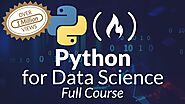
Data Science, Machine Learning, AI & Analytics
KDnuggets is a leading site on Data Science, Machine Learning, AI and Analytics. Edited by Matthew Mayo (email to editor1 at kdnuggets). KDnuggets was founded by Gregory Piatetsky-Shapiro.
KD stands for Knowledge Discovery.

Take Udacity's data science course and learn how to become a data scientist online. Gain real-world data science experience with projects from industry experts.
Estimated 4 months to complete
You’ll master the skills necessary to become a successful Data Scientist. You’ll work on projects designed by industry experts, and learn to run data pipelines, design experiments, build recommendation systems, and deploy solutions to the cloud.

Alle reden über “Maschinelles Lernen”, "Neuronale Netze", "Künstliche Intelligenz" und "Deep Learning - doch wie diese Techniken genau in der Praxis funktionieren und eingesetzt werden, erfahren Sie in diesem weiterführenden openHPI Kurs. In diesem vierwöchigen Gratis-Kurs können Jugendliche und

Hier lernen Jugendliche und andere Interessierte ohne Programmier-Erfahrung und technisches Hintergrund-Wissen, die Welt des maschinellen Lernens und der künstlichen Intelligenz zu verstehen. Wir führen Sie dazu in die grundlegenden Konzepte ein. Dabei erfahren Sie, wo die Unterschiede zwischen

AI Research Navigator is a search engine 100% focused to keep AI and Data Science team organized and up to date
Zeta Alpha is the best neural discovery and recommendations engine for papers, trends and code in the fast-paced world of AI. Our platform becomes your research assistant that streamlines how you and your team organize, share, and stay up-to-date.
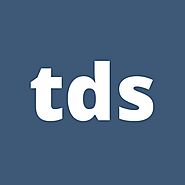
Your home for data science. A Medium publication sharing concepts, ideas and codes.
Towards Data Science Inc. is proud to run a publication where independent authors who follow our rules and guidelines can publish their work, share their knowledge and expertise, and engage a wide audience on Medium. We love connecting ideas with readers, but we're unable to vet the accuracy of every contribution — so use your best judgment and seek professional advice before taking any action based on the content on this site.

Analytics India Magazine chronicles technological progress in the space of analytics, artificial intelligence, data science & big data in India
Analytics India Magazine chronicles technological progress in the space of analytics, artificial intelligence, data science & big data by highlighting the innovations, players, and challenges shaping the future of India through promotion and discussion of ideas and thoughts by smart, ardent, action-oriented individuals who want to change the world.

Papers With Code highlights trending Machine Learning research and the code to implement it.
The mission of Papers with Code is to create a free and open resource with Machine Learning papers, code, datasets, methods and evaluation tables.
We believe this is best done together with the community, supported by NLP and ML.
All content on this website is openly licenced under CC-BY-SA (same as Wikipedia) and everyone can contribute - look for the "Edit" buttons!
We also operate specialized portals for papers with code in astronomy, physics, computer sciences, mathematics and statistics.

Normen und Standards schaffen Vertrauen in KI und sind damit eine wesentliche Grundlage für die weitere Entwicklung der Zukunftstechnologie. Die Normungsroadmap KI legt den strategischen Fahrplan für die Standardisierung im Bereich der Künstlichen Intelligenz fest und setzt damit eine wesentliche Maßnahme der KI-Strategie der Bundesregierung um.
Gemeinsam mit der Bundesregierung und Vertreter*innen aus Wirtschaft, Wissenschaft und der Zivilgesellschaft haben DIN und DKE die erste Ausgabe der Normungsroadmap zu Künstlicher Intelligenz erarbeitet und auf dem Digital Gipfel 2020 veröffentlicht (für weitere Infos und Download der Roadmap siehe www.din.de/go/normungsroadmapki).
Mit der virtuellen Auftaktveranstaltung am 20. Januar 2022 begannen offiziell die Arbeiten an der zweiten Ausgabe der Roadmap. Ziel der Ausgabe zwei ist die Fortschreibung und Weiterentwicklung der Ergebnisse der ersten Ausgabe der Roadmap. Dabei werden auch neue Schwerpunkte gesetzt und Handlungsempfehlungen für neue Themenfelder formuliert. Die Normungsroadmap KI leistet damit einen wesentlichen Beitrag dazu, die nationale Position in der Normung noch stärker auf der europäischen und internationalen Ebene einzubringen.
Die Erarbeitung der Roadmap erfolgt im Auftrag des Bundesministeriums für Wirtschaft und Klimaschutz (BMWK) und wird gesteuert von der hochrangigen Koordinierungsgruppe „KI-Normung und Konformität“.

The Ethics of AI is a free online course created by the University of Helsinki. The course is for anyone who is interested in the ethical aspects of AI – we want to encourage people to learn what AI ethics means, what can and can’t be done to develop AI in an ethically sustainable way, and how to start thinking about AI from an ethical point of view.
Machine Learning Operations
Being an emerging field, MLOps is rapidly gaining momentum amongst Data Scientists, ML Engineers and AI enthusiasts. Following this trend, the Continuous Delivery Foundation SIG MLOps differentiates the ML models management from traditional software engineering and suggests the following MLOps capabilities:
MLOps aims to unify the release cycle for machine learning and software application release.
MLOps enables automated testing of machine learning artifacts (e.g. data validation, ML model testing, and ML model integration testing)
MLOps enables the application of agile principles to machine learning projects.
MLOps enables supporting machine learning models and datasets to build these models as first-class citizens within CI/CD systems.
MLOps reduces technical debt across machine learning models.
MLOps must be a language-, framework-, platform-, and infrastructure-agnostic practice.

Angeboten von deeplearning.ai. Become a Machine Learning expert. Productionize your machine learning knowledge and expand your production ... Kostenlos anmelden.
Understanding machine learning and deep learning concepts is essential, but if you’re looking to build an effective AI career, you need production engineering capabilities as well.
Effectively deploying machine learning models requires competencies more commonly found in technical fields such as software engineering and DevOps. Machine learning engineering for production combines the foundational concepts of machine learning with the functional expertise of modern software development and engineering roles.
The Machine Learning Engineering for Production (MLOps) Specialization covers how to conceptualize, build, and maintain integrated systems that continuously operate in production. In striking contrast with standard machine learning modeling, production systems need to handle relentless evolving data. Moreover, the production system must run non-stop at the minimum cost while producing the maximum performance. In this Specialization, you will learn how to use well-established tools and methodologies for doing all of this effectively and efficiently.
In this Specialization, you will become familiar with the capabilities, challenges, and consequences of machine learning engineering in production. By the end, you will be ready to employ your new production-ready skills to participate in the development of leading-edge AI technology to solve real-world problems.

It’s a technique for building a computer program that learns from data. It is based very loosely on how we think the human brain works. First, a collection of software “neurons” are created and connected together, allowing them to send messages to each other. Next, the network is asked to solve a problem, which it attempts to do over and over, each time strengthening the connections that lead to success and diminishing those that lead to failure. For a more detailed introduction to neural networks, Michael Nielsen’s Neural Networks and Deep Learning is a good place to start. For a more technical overview, try Deep Learning by Ian Goodfellow, Yoshua Bengio, and Aaron Courville.
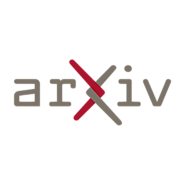
Trained machine learning models are increasingly used to perform high-impact tasks in areas such as law enforcement, medicine, education, and employment. In order to clarify the intended use cases of machine learning models and minimize their usage in contexts for which they are not well suited, we recommend that released models be accompanied by documentation detailing their performance characteristics. In this paper, we propose a framework that we call model cards, to encourage such transparent model reporting. Model cards are short documents accompanying trained machine learning models that provide benchmarked evaluation in a variety of conditions, such as across different cultural, demographic, or phenotypic groups (e.g., race, geographic location, sex, Fitzpatrick skin type) and intersectional groups (e.g., age and race, or sex and Fitzpatrick skin type) that are relevant to the intended application domains. Model cards also disclose the context in which models are intended to be used, details of the performance evaluation procedures, and other relevant information. While we focus primarily on human-centered machine learning models in the application fields of computer vision and natural language processing, this framework can be used to document any trained machine learning model. To solidify the concept, we provide cards for two supervised models: One trained to detect smiling faces in images, and one trained to detect toxic comments in text. We propose model cards as a step towards the responsible democratization of machine learning and related AI technology, increasing transparency into how well AI technology works. We hope this work encourages those releasing trained machine learning models to accompany model releases with similar detailed evaluation numbers and other relevant documentation.
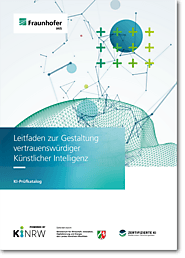
Unser KI-Prüfkatalog ist ein kostenfreier Leitfaden zur Gestaltung vertrauenswürdiger Künstlicher Intelligenz. Er unterstützt Entwicklerinnen bei der Gestaltung und KI-Prüferinnen bei der Evaluation und Qualitätssicherung neuer und bestehender KI-Anwendungen.
Leitfaden zur Gestaltung vertrauenswürdiger Künstlicher Intelligenz
Von Sprachassistenzsystemen über die Analyse von Bewerbungsdokumenten bis hin zum autonomen Fahren – als Schlüsseltechnologie der Zukunft kommt Künstliche Intelligenz (KI) überall zum Einsatz. Umso wichtiger ist es, KI-Anwendungen so zu gestalten, dass sie verlässlich und sicher agieren und transparent und zuverlässig mit Daten umgehen. Dies ist eine notwendige Voraussetzung dafür, dass KI auch in sensiblen Bereichen zum Einsatz kommen kann und Nutzer*innen nachhaltig Vertrauen in die Technologie haben.
Qualität und Vertrauen als Wettbewerbsvorteile
Um hochwertige KI-Produkte und -Dienstleistungen zu entwickeln, ist es für Unternehmen und Entwickler*innen demnach unerlässlich, die Vertrauenswürdigkeit eines KI-Systems sicherzustellen und nachzuweisen: Entweder von Entwicklungsstart an (by design) oder durch objektive Prüfungen im Laufe des Anwendungsbetriebs.
So erfüllen KI-Anwendungen nicht nur entsprechende Richtlinien und schaffen Vertrauen und Akzeptanz, sondern können auch einen wertvollen Beitrag zur Markenbildung leisten und somit Wettbewerbsvorteile schaffen.

The value of a shared understanding of AI models
Whether it’s knowing the nutritional content in our food, the conditions of our roads, or a medication’s interaction warnings, we rely on information to make responsible decisions. But what about AI? Despite its potential to transform so much of the way we work and live, machine learning models are often distributed without a clear understanding of how they function. For example, under what conditions does the model perform best and most consistently? Does it have blind spots? If so, where? Traditionally, such questions have been surprisingly difficult to answer.

The International Journal of Artificial Intelligence & Applications (IJAIA) is a bi monthly open access peer-reviewed journal that publishes articles which contribute new results in all areas of the Artificial Intelligence & Applications (IJAIA).
Singapore issued the Model AI Governance Framework, a sector-, technology-, scale-, business model- and algorithm-agnostic framework that converts relevant ethical principles to practices that can be implemented throughout an AI deployment process. This enables organizations to operationalize the principles.
Reference: Mäntymäki, M., Minkkinen, M., Birkstedt, T., & Viljanen, M. (2022). Putting AI Ethics into Practice: The Hourglass Model of Organizational AI Governance (arXiv:2206.00335). arXiv. https://doi.org/10.48550/arXiv.2206.00335
Abstract
The organizational use of artificial intelligence (AI) has rapidly spread across various sectors.
Alongside the awareness of the benefits brought by AI, there is a growing consensus on the
necessity of tackling the risks and potential harms, such as bias and discrimination, brought
about by advanced AI technologies. A multitude of AI ethics principles have been proposed to
tackle these risks, but the outlines of organizational processes and practices for ensuring
socially responsible AI development are in a nascent state. To address the paucity of
comprehensive governance models, we present an AI governance framework, the hourglass
model of organizational AI governance, which targets organizations that develop and use AI
systems. The framework is designed to help organizations deploying AI systems translate
ethical AI principles into practice and align their AI systems and processes with the
forthcoming European AI Act. The hourglass framework includes governance requirements at
the environmental, organizational, and AI system levels. At the AI system level, we connect
governance requirements to AI system life cycles to ensure governance throughout the
system’s life span. The governance model highlights the systemic nature of AI governance and
opens new research avenues into its practical implementation, the mechanisms that connect
different AI governance layers, and the dynamics between the AI governance actors. The model
also offers a starting point for organizational decision-makers to consider the governance
components needed to ensure social acceptability, mitigate risks, and realize the potential of
AI.

In diesem Kurs erfährst du, welche Aspekte bei der Umsetzung von KI-Projekten in Unternehmen zu beachten sind. Mit dem "Enterprise AI Canvas" lernst du ein Tool kennen, das bei der Bewertung von Anwendungsfällen unterstützt.
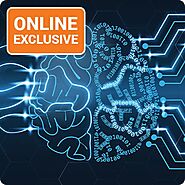
Artificial intelligence (AI) has evolved rapidly over the past few years. A decade ago, AI was just a concept with few real-world applications, but today it is one of the fastest-growing technologies, attracting widespread adoption
